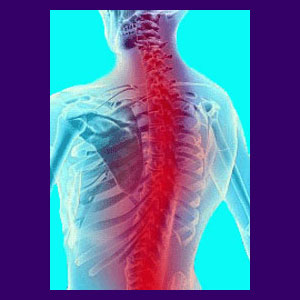
Cancer back pain can be a common and horribly unfortunate side effect of the disease itself or a consequence of the many treatments used to combat the condition. Cancer patients have a difficult time dealing with severe back ache, since their constitutions have frequently been diminished by the ravages of their disease. Therapy options for cancer also have serious side effects and might even be the cause of cancer-related back pain.
This essay examines the causes of chronic back problems in relation to cancer or cancer treatment. We hope that this essay provides insight for productive conversations between patients and their doctors.
Cancer Back Pain Causes
Cancer-related spinal pain can be caused by the disease or by the treatments through the following scenarios:
Spinal tumors can cause vertebral fractures.
Severe tumors can lead to spinal instability.
Tumors can also cause nerve compression in and around the spine.
Tumors can restrict blood flow causing oxygen deprivation back pain.
Tumors can cause inflammation inside the body creating tender areas.
Infection is always a possible cause of pain, especially after a surgical procedure.
Radiation can cause pain and other disabling symptoms.
Chemotherapy can cause pain and other debilitating symptoms.
Cancer and the Spine
The majority of spinal tumors are actually metastatic cancers that have spread from other affected sites such as the breast, lung, kidney or prostate. Metastasis is a serious condition that is difficult to treat and often has dire consequences for the patient.
Primary spinal tumors are rare, but can also cause serious structural and neurological effects. These tumors can grow on the spinal bones, in any of the layers of meninges or on the spinal cord itself.
Cancer Back Pain Symptoms
Below is a lost of symptoms which might indicate a cancerous condition in or near the spine:
Localized or radiating pain, tingling, weakness or numbness are commonplace for many cancer and noncancer-related dorsalgia issues.
Bowel or bladder problems often indicate impingement of the spinal cord or cauda equina structure.
Visual deformity in the spine can be enacted by all manner of cancerous growths on and beneath the surface of the skin.
Physical touch or compression of the area might cause unexpected degrees of idiopathic pain.
Flu-like symptoms including loss of appetite, fever, nausea, chills, aches and pains are common traits of many neoplastic processes.
Most of these symptoms are common for a variety of back pain conditions. Just because you have one or more does not mean that you have cancer. It is always advisable to get a complete evaluation for any new pain syndrome to diagnose or exclude any chance of cancer or other neoplastic process.
Cancer Back Pain Factsheet
If you have unexplained back pain, always make the effort to get checked out by a doctor. Ruling out cancer as a cause or contributor is reason enough to get a check up. Remember, cancer can cause back pain through many processes. It is important to be on guard for cancer, since early detection and treatment allow a better chance for survival and an improved quality of life post-treatment.
If you are a cancer patient with back pain, talk to your doctor about the cause. Determining whether the cancer or the treatments are actually causing your back pain is half the battle. Once the cause has been determined, your doctor might be able to find a solution to your pain. If your treatment is causing back pain, talk to your doctor about alternate therapies, or at least symptomatic pain relief.
Regardless of the source of your pain, keep a positive mental state and have confidence in your therapies. This is key to ensure the success of treatment and the resolution of your cancer symptoms.





